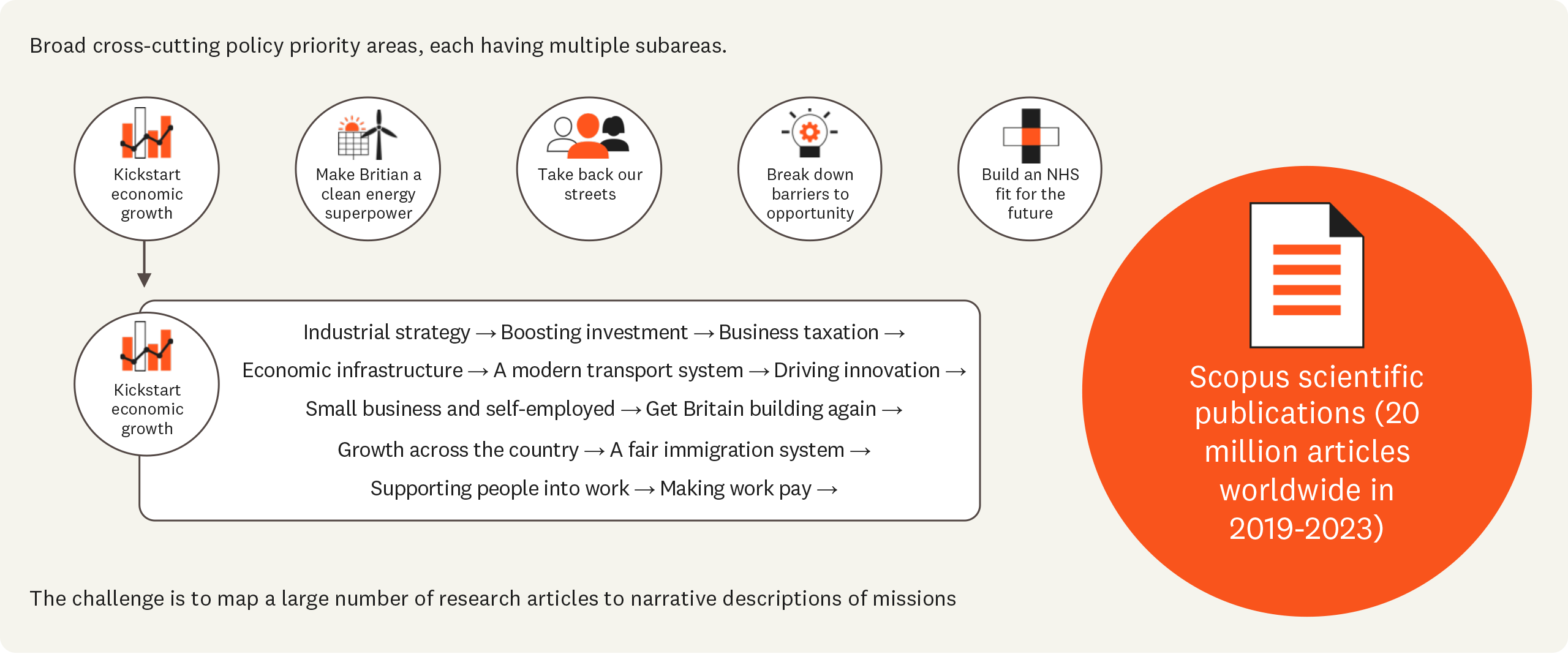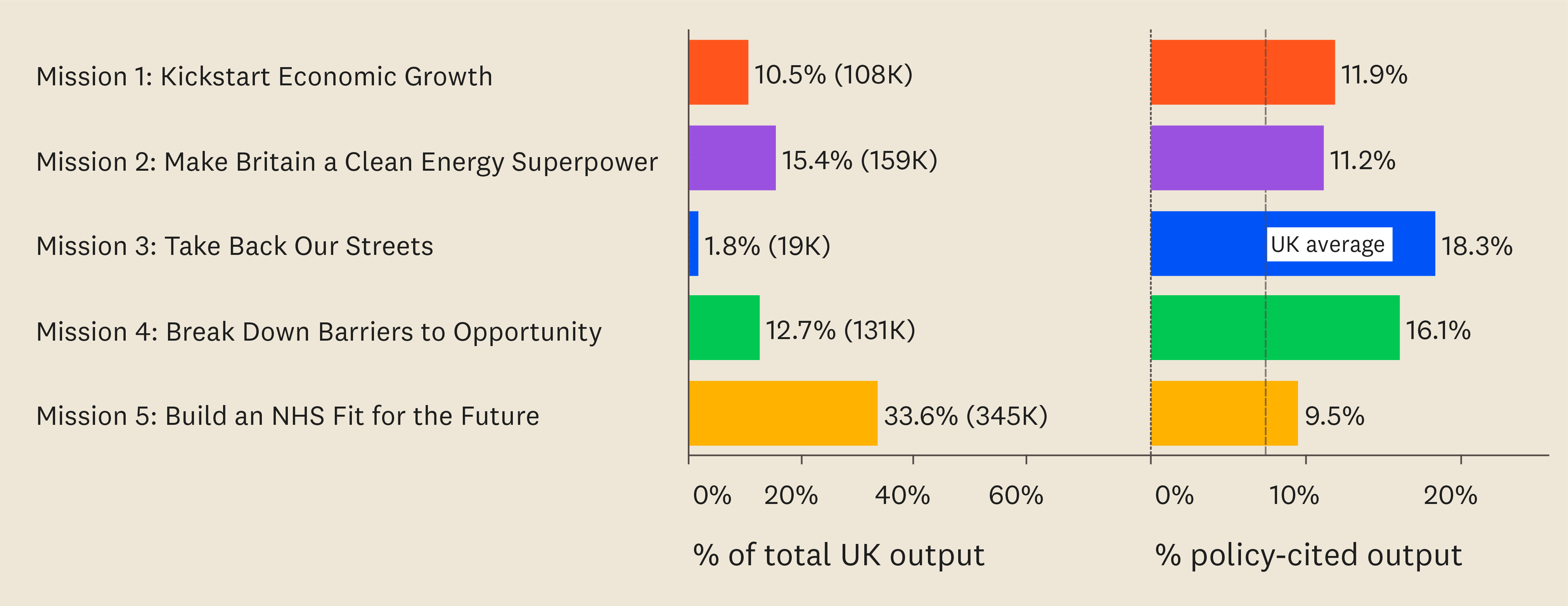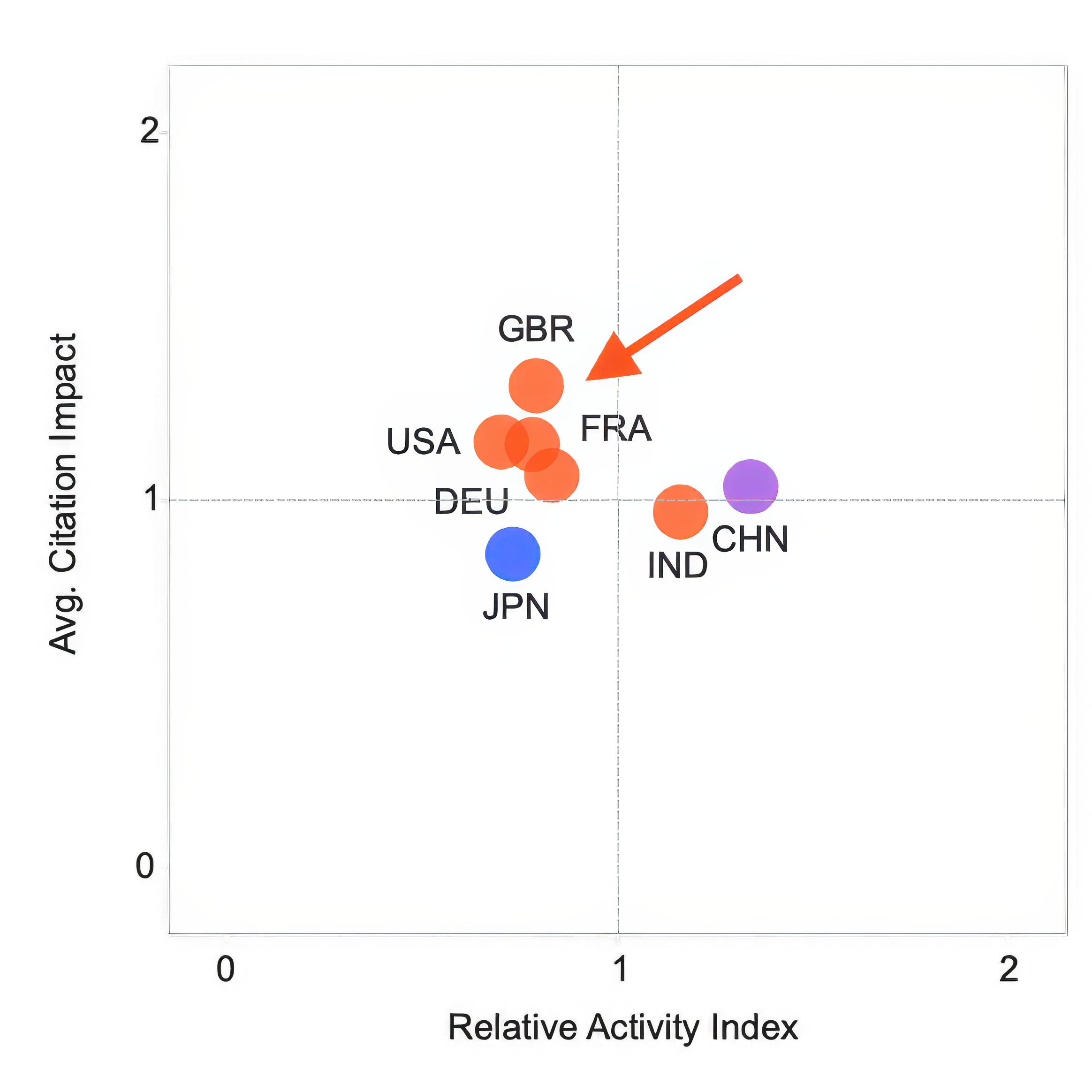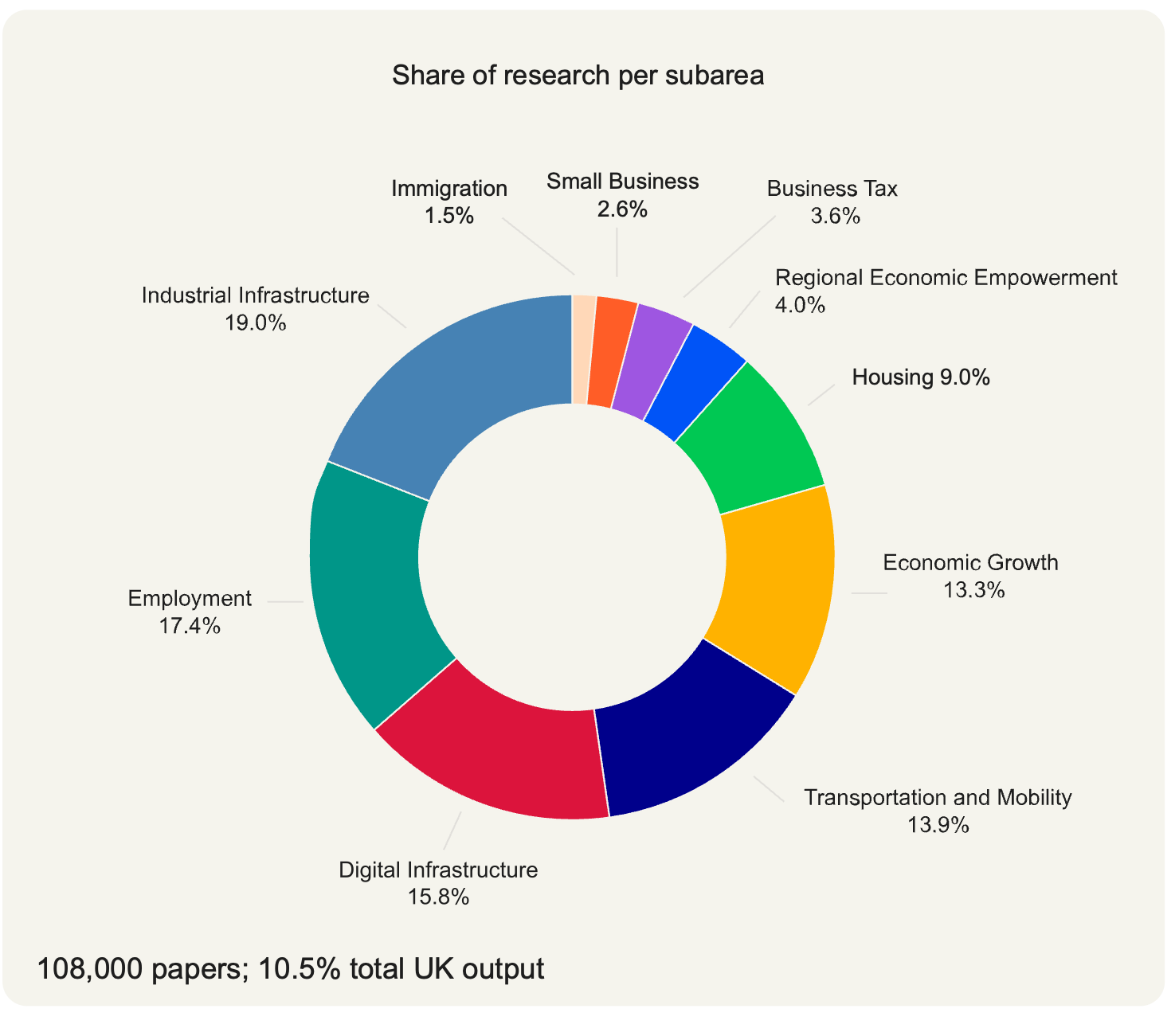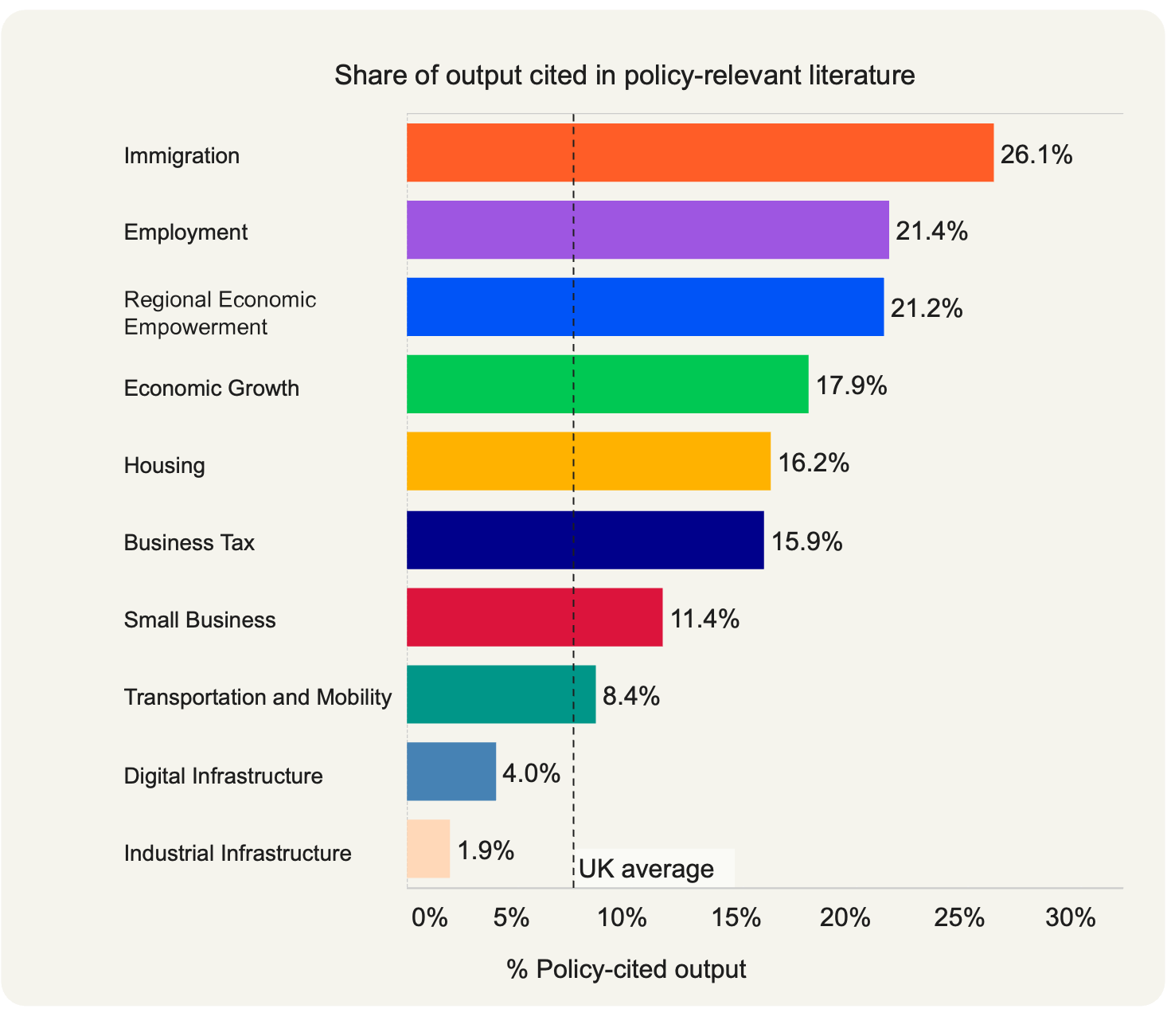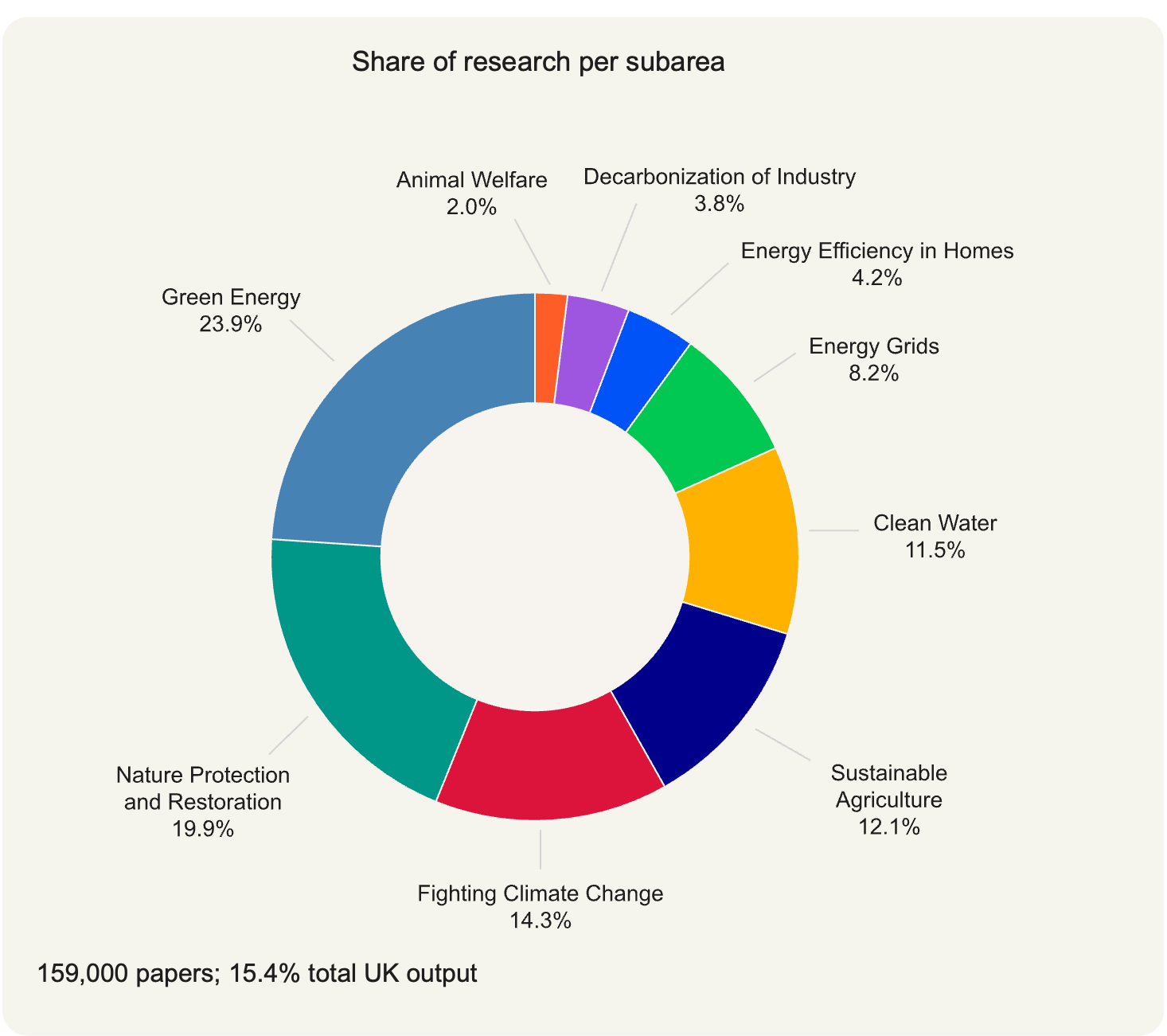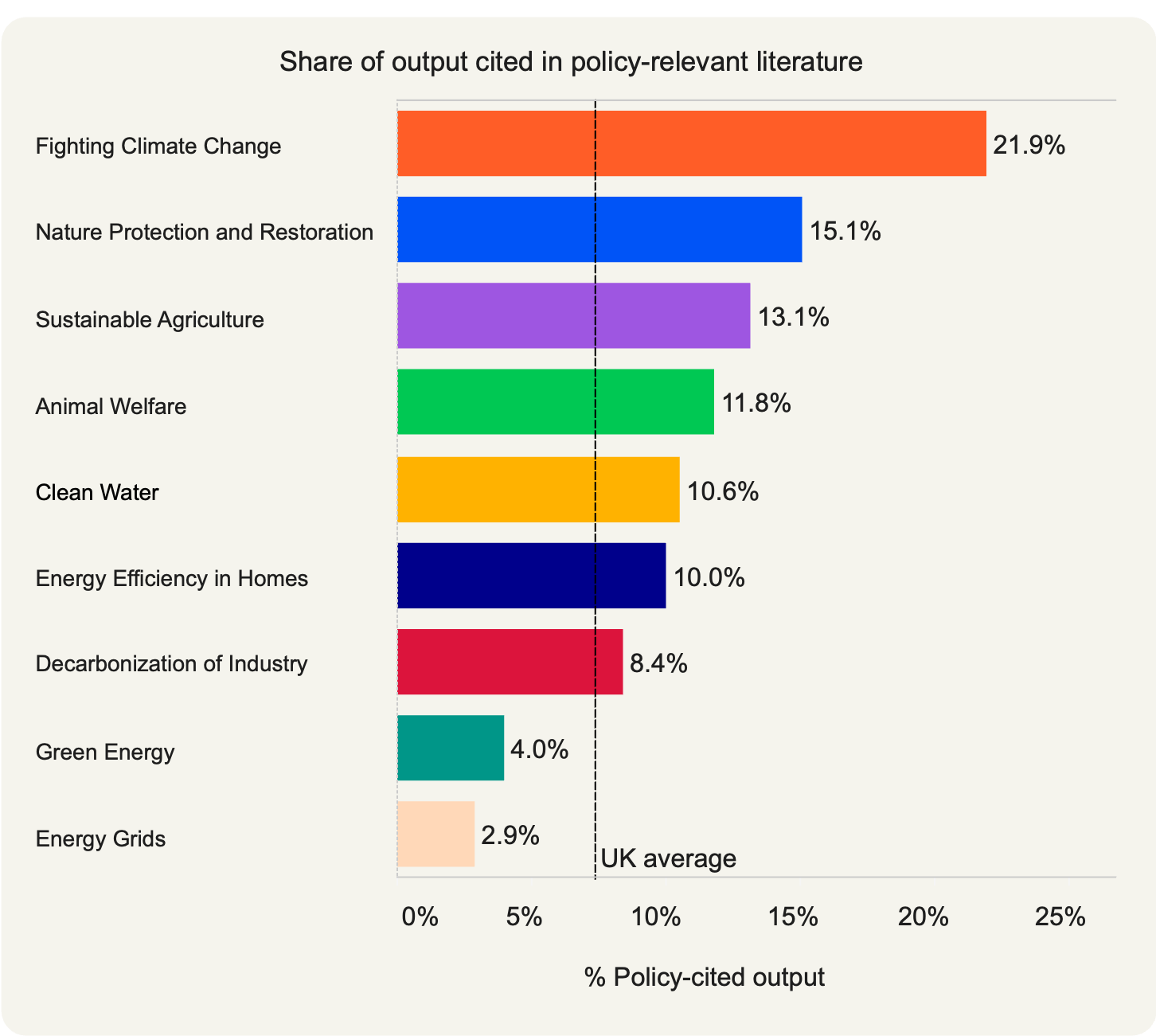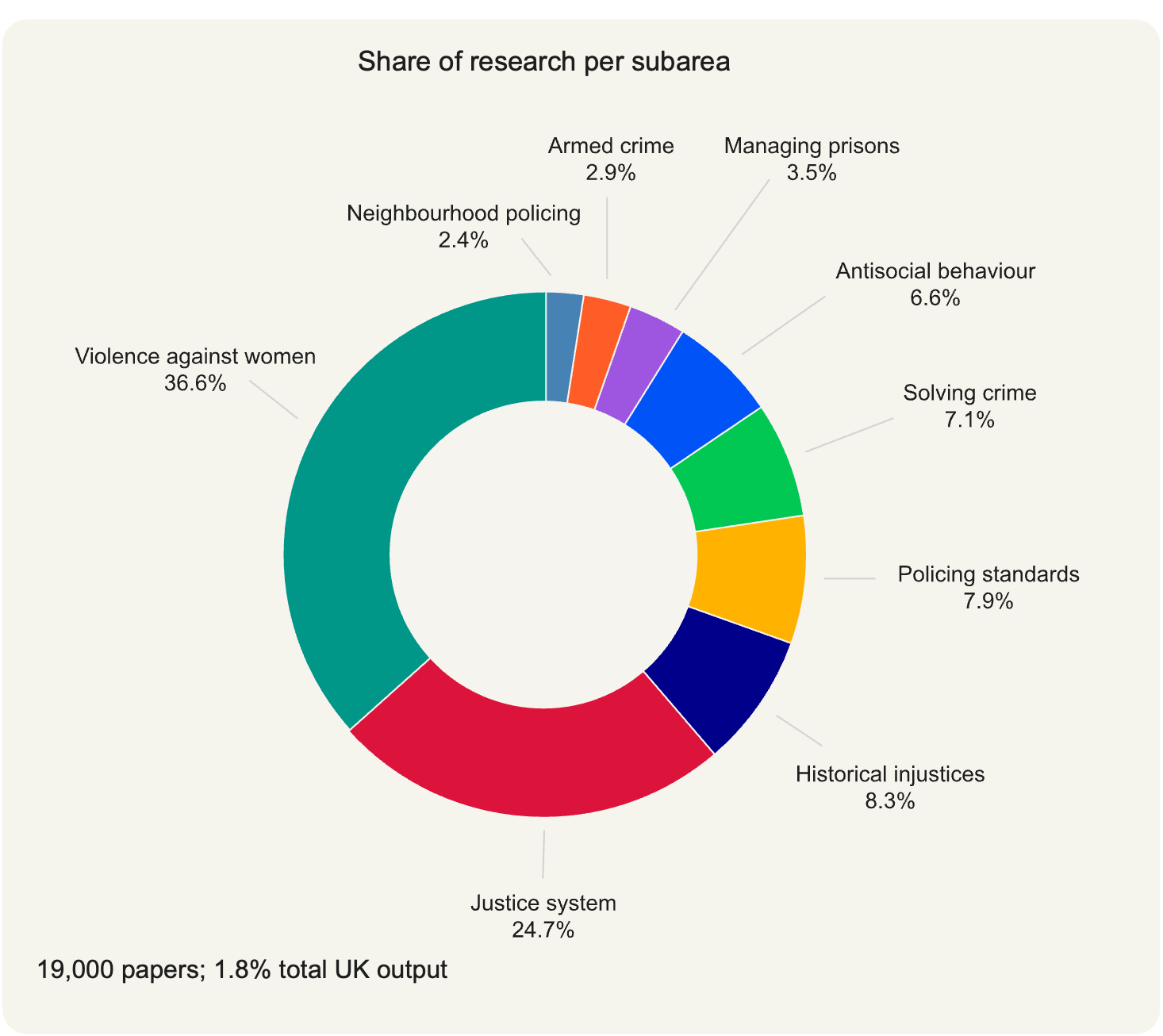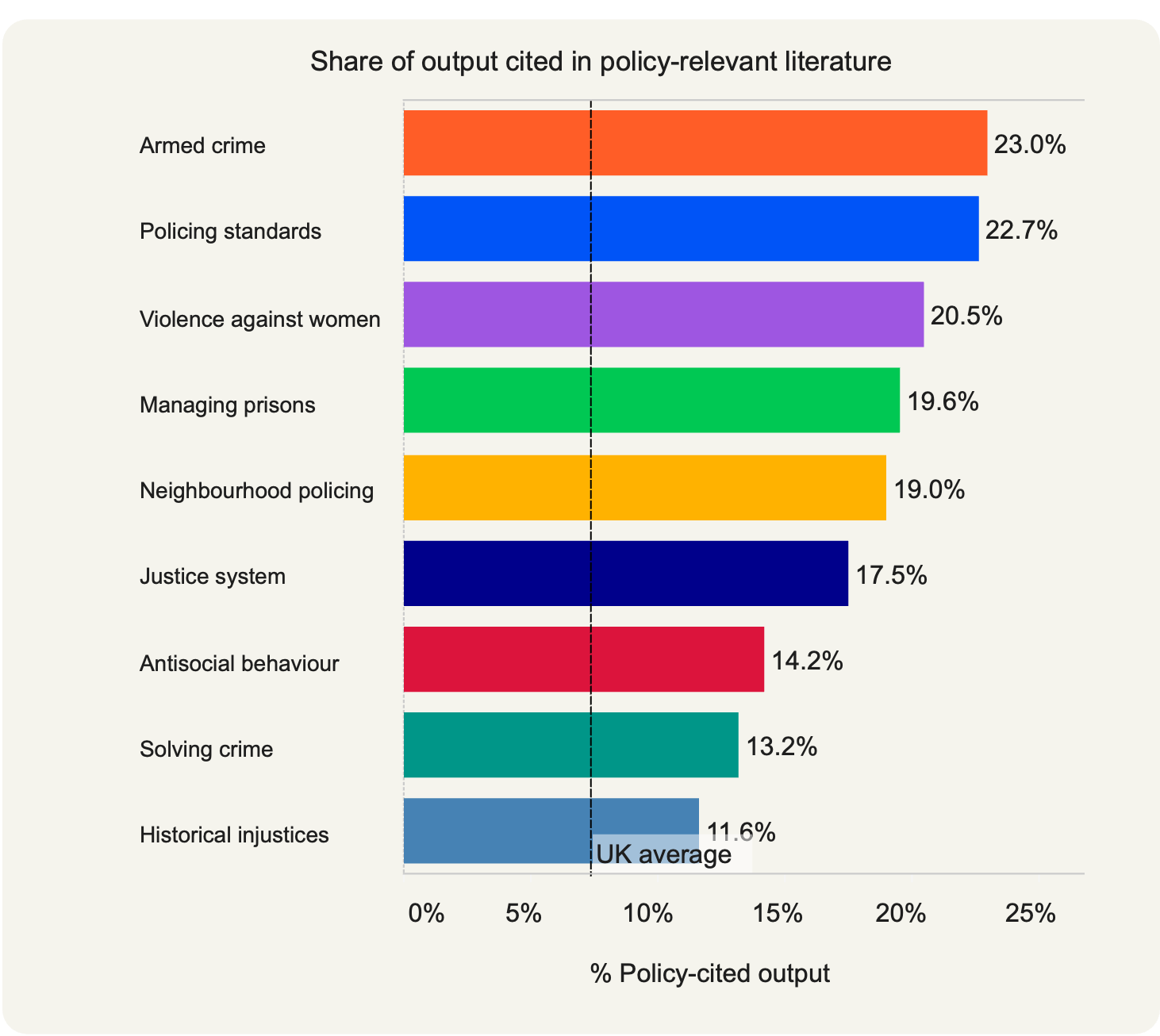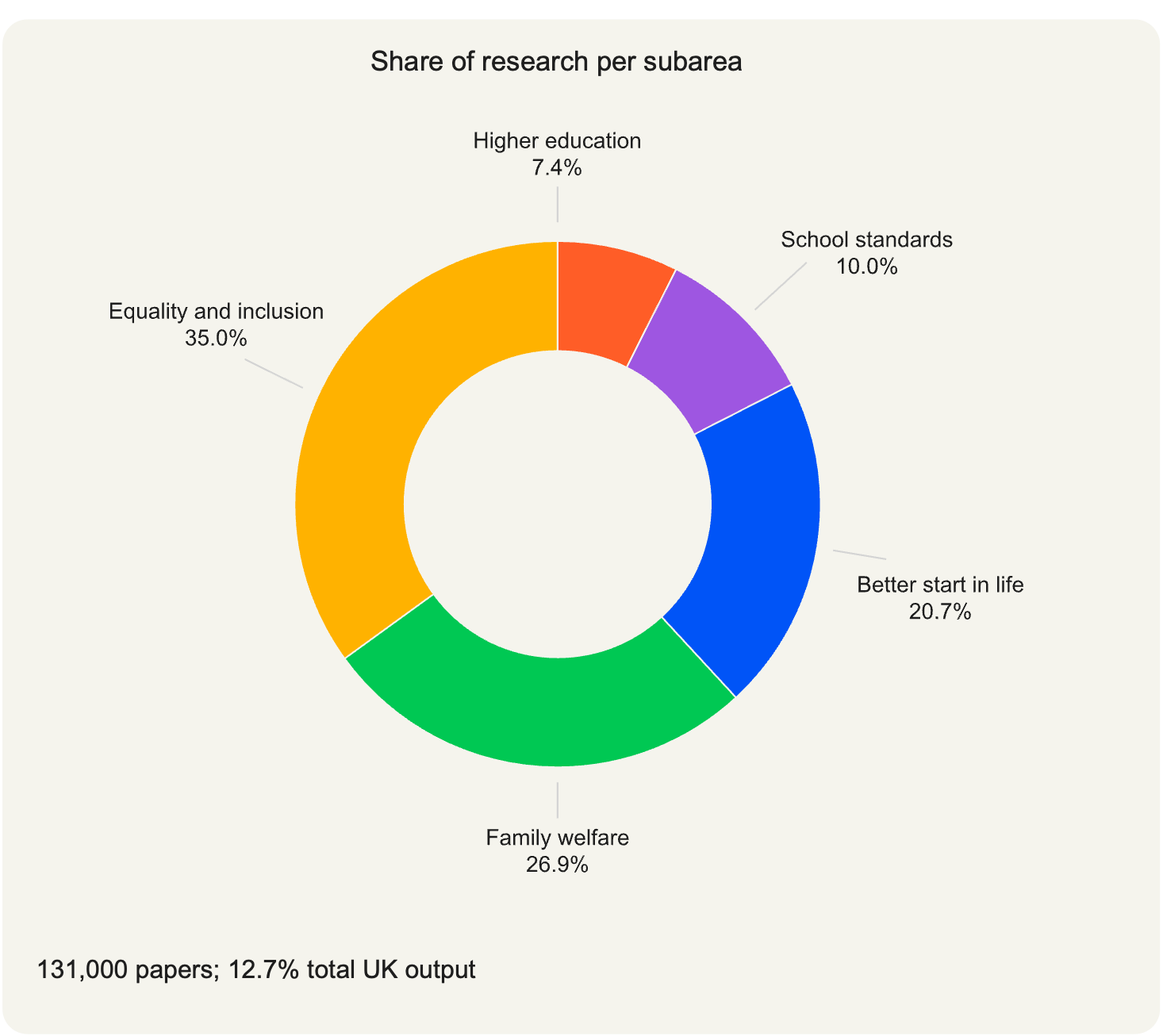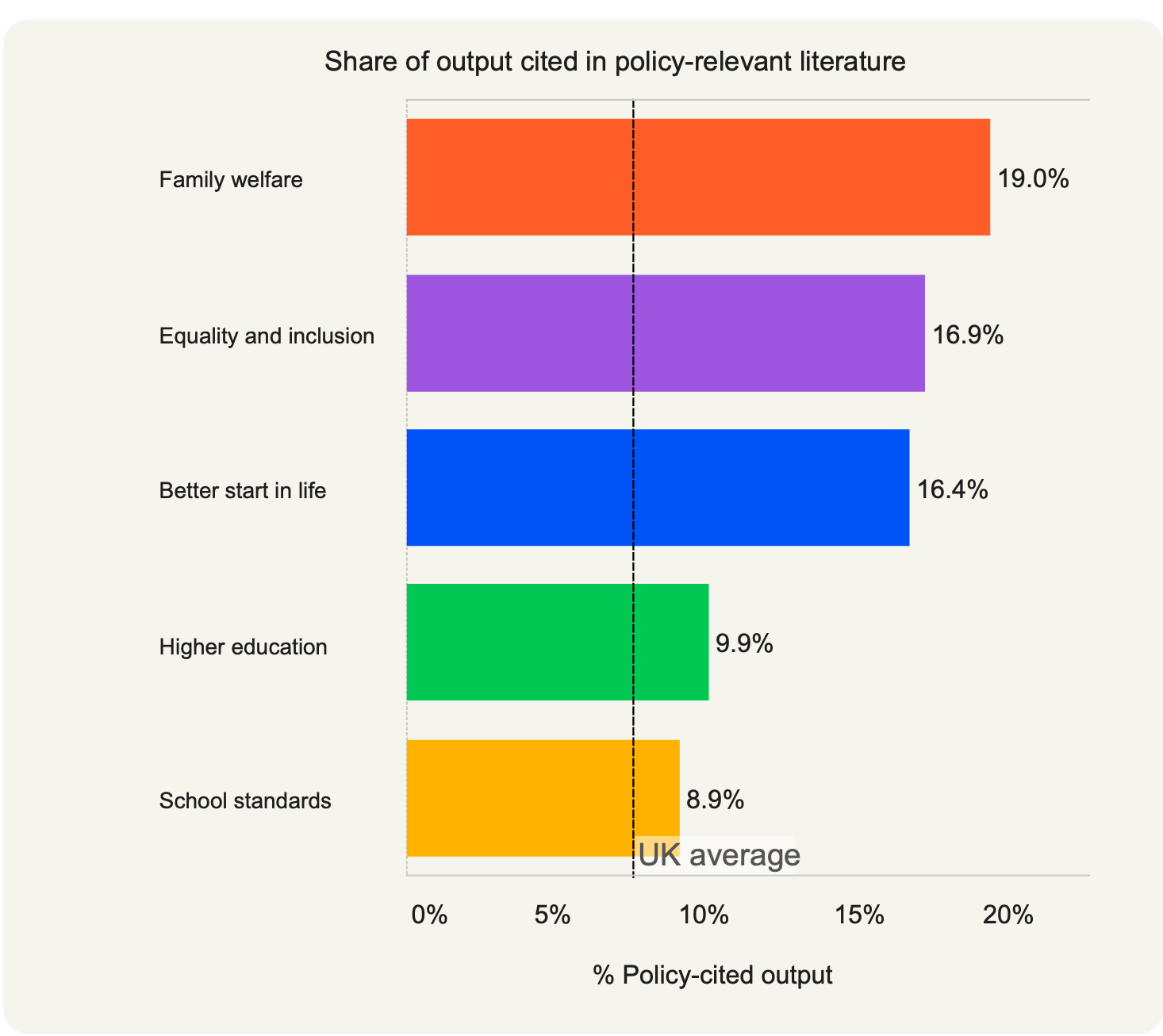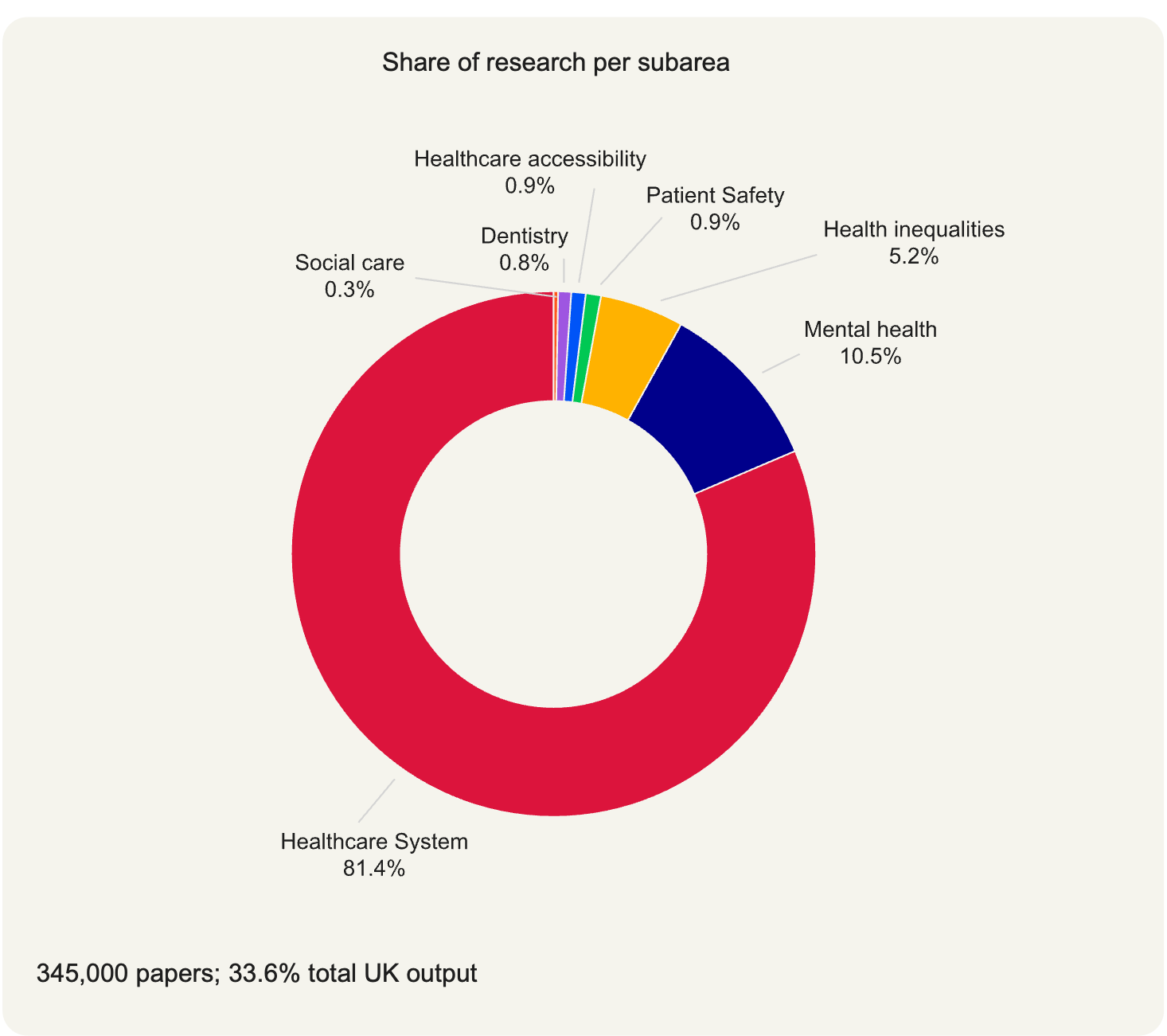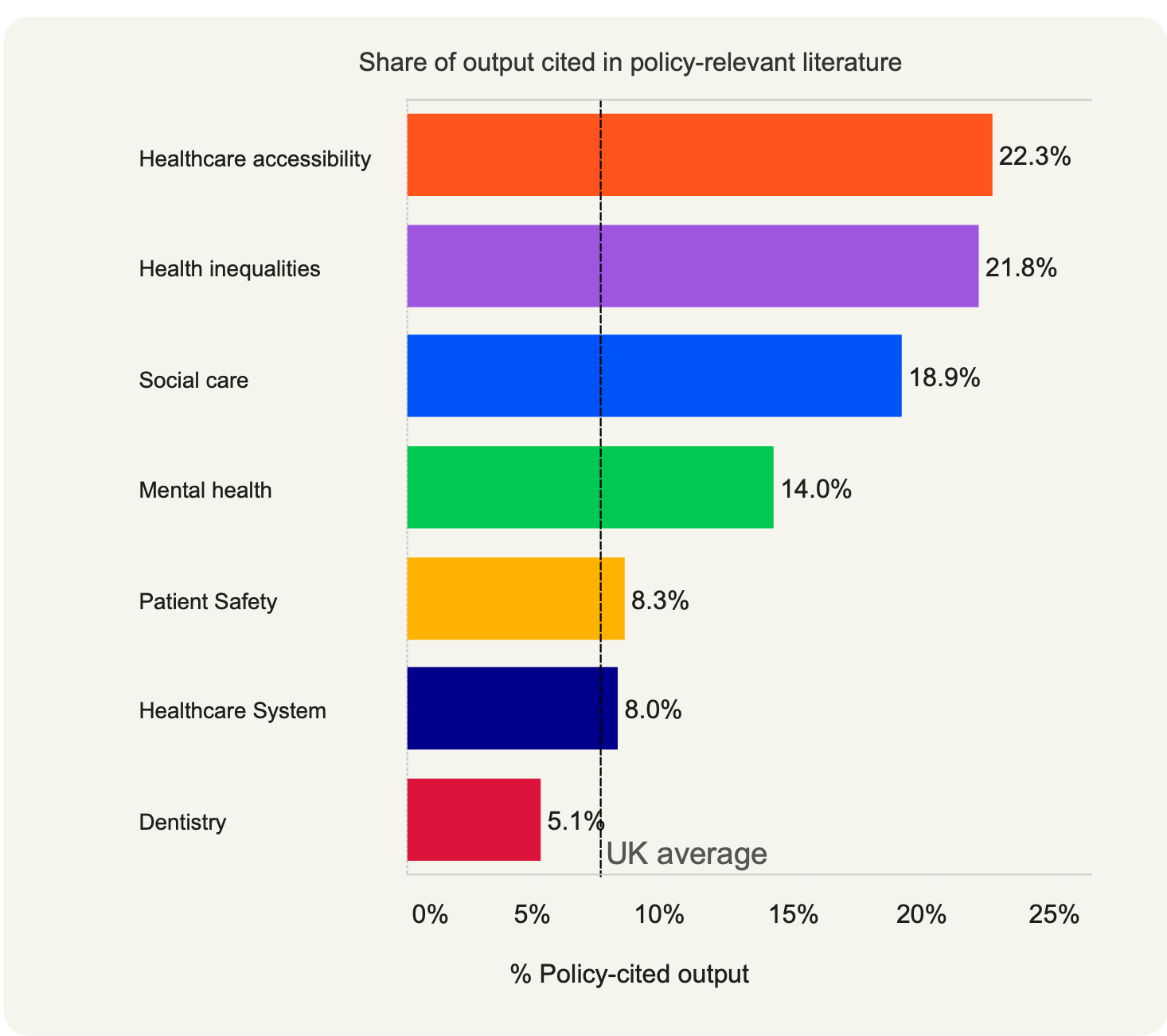UK research and innovation capability to support Government's five missions
Selected insights into the alignment of UK research with Government priorities
Sarah Main and Dmitrii Malkov | September 2025

Research and innovation play a central role in delivering all of the Government’s missions. A new analysis by Elsevier highlights the strength of the UK’s research and innovation capabilities in supporting these five missions.
By understanding where these research strengths lie, the Government can better leverage and build on them to achieve its goals. At the same time, university and research leaders can use these insights to guide their efforts and demonstrate their contribution to national priorities.
Five missions guide the Government’s national agenda.
1. Kickstart economic growth
Around a tenth of UK publications between 2019 and 2023 were related to Mission 1: Kickstart economic growth. Of the areas of focus Government identified for this mission, those with the largest volume of research publications were Industrial Infrastructure and Employment.
2. Make Britain a clean energy superpower
Around 15% of UK publications between 2019 and 2023 were related to Mission 2: Make Britain a clean energy superpower. Of the Government’s areas of focus in this mission, those with the largest volume of research publications were Green Energy and Nature Protection and Restoration.
3. Take back our streets
This is the mission with the lowest amount of UK research publications related to the topic, at just under 2% of the total, but the highest relevance to policy-making. UK research was found to have informed multiple Government strategies and projects related to public safety and criminal justice.
4. Break down barriers to opportunity
UK academic research has informed multiple policy-related reports aimed at improving school standards and learning outcomes. Around 13% of UK research publications between 2019 and 2023 were associated to the Government’s mission on education: ‘Break down barriers to opportunity’.
5. Build an NHS fit for the future
A third of all UK research publications between 2019 and 2023 were associated with the mission, ‘Build an NHS fit for the future’. Of the areas of focus Government identified for this mission, the largest volume of research publications was related to ‘Healthcare System’.
"A significant body of UK research activity directly relates to the Government’s five missions. Understanding this capability could support research leaders and government to deliver national goals.”
Dr Sarah Main, Elsevier Vice President, Academic and Government

A new methodology
An understanding of how UK research and innovation supports the Government’s five missions would encompass many dimensions, such as the people, infrastructure and resource of the research system, as well its research output.
A new methodology has been developed to map the UK’s research publications to the Government’s five missions. This offers an approach to understanding one dimension of this question and offers insights into others.
Elsevier has created a new AI-powered methodology using Large Language Models to classify research papers into mission areas. Currently in development, we welcome your feedback to help improve it.
For the first time, this approach enables research outputs to be mapped at scale to narrative descriptions of policy priorities, and it has the potential to be applied to other government or policy priorities. This analysis was produced by classifying 20 million articles published between 2019-2023.
Mapping academic research to policy missions

A significant body of UK research is directly related to the Government’s missions
UK research and innovation aligns closely with the Government’s five missions. Elsevier’s analysis reveals that a significant share of UK research from 2019-2023 directly relates to the five missions, for example 11% of total UK output is connected to Mission 1: Kickstart economic growth.
Research linked to the missions proves especially valuable for policymaking, as mission-related studies are cited in policy documents more often than the national average for UK research.
UK research related to the Government's five missions
International capability in research related to the missions
Looking at the research capabilities of other countries related to the Government’s missions can help identify potential collaborators, suppliers and competitors in delivering these goals.
For example, China and India have a high degree of specialization in research related to ‘clean energy superpower’.
Mission 2: Make Britain a Clean Energy Superpower


Around a tenth of UK publications between 2019 and 2023 were related to Mission 1: Kickstart economic growth. Within this mission, the Government’s key focus areas with the most research publications were Industrial Infrastructure and Employment.
Policy relevance was particularly high for some areas of focus, such as ‘Regional Economic Empowerment’ with over 20% articles cited in policy-relevant documents.
While immigration had the smallest publication output within this mission, it had the highest citation rate across all missions, at 26%. Research on Employment grew substantially over time, with workplace impacts of Covid becoming prominent topics between 2019 and 2023 compared to 2014-18.


Around 15% of UK publications between 2019 and 2023 were related to Mission 2: Make Britain a clean energy superpower. Within this mission, the areas with the most research publications were Green Energy and Nature Protection and Restoration.
The highest policy relevance was seen in Fighting Climate Change, with around 22% of output cited in policy-relevant documents. For example, a 2021 paper on global aviation was referenced in the Department for Transport’s ‘Jet Zero Strategy’ in 2022.
Notable research topics linked to this mission are include tidal energy turbines (Green Energy); smart manufacturing technologies (Decarbonisation of Industry); and the environmental impact of food production (Sustainable Agriculture).


This mission has the lowest share of UK research publications related to the topic, at just under 2% of the total, but shows the highest relevance to policymaking. UK research has contributed to multiple Government strategies and projects focused on public safety and criminal justice.
In fact, across all nine areas of focus for this mission, research publications are cited in policy-relevant documents at rates above the national average.
Violence Against Women has the highest volume of research publications, with over 20% of publications cited in policy literature. For example, a 2023 Ministry of Justice evaluation on cognitive-behavioural interventions for men convicted of Intimate Partner Violence drew on research from the University of Kent on specialised psychological treatment.
Armed Crime, despite having one of the lowest volumes of research publications, has one of the highest citation rates in policy-related documents at 23%.
Research on systems and effectiveness, such as Managing Prisons and Policing Standards, remains important, with growing attention on the fairness and ethics of AI in policing over time.


UK academic research has played a key role in shaping policy-related reports focused on improving school standards and learning outcomes. Between 2019 and 2023, around 13% of UK research publications were linked to the Government’s mission on education: ‘Break down barriers to opportunity’.
The Government’s areas of focus for this mission include ensuring the Best Start In Life through high quality early education and childcare, and Raising School Standards. For example, in 2021, the Department for Education assessment of lifetime earnings value of GCSE attainment drew on academic research, including a study by the London School of Economics on the cost of failing national school exams.
The areas with the largest volume of related research are Diversity and Inclusion and Family Welfare, both of which are highly cited in policy documents.


Athird of all UK research publications between 2019 and 2023 were linked to the mission, ‘Build an NHS fit for the future’. Among the Government’s focus areas for this mission, the largest volume of research publications was related to ‘Healthcare System’.
Some areas with the lower research output, like Healthcare Accessibility and Health Inequalities, showed particularly high policy relevance, with over 20% articles cited in policy-relevant documents. For example, a Parliamentary Office for Science and Technology report on outdoor air quality and related health inequalities utilised multiple UK academic studies, including one on exposure to road traffic air pollution in deprived urban areas.
The impact of research related to Mental Health grew substantially over time, with topics such as psychological effects of Covid-19, benefits of nature, and social isolation and loneliness gaining prominence between 2019 and 2023 compared to 2014-18.
Potential for further insights
The findings in this presentation demonstrate how a new methodology can identify UK research linked to each of the Government’s mission. This approach opens up opportunities to explore deeper insights, such as key people, institutions, places, technologies or ideas associated with research related to each mission.
This new approach could help research leaders and policymakers leverage the UK’s strong research and innovation capabilities to deliver national goals.
"Looking at research and innovation through the lens of the Government’s missions helps us focus on what really matters: turning ideas into actions that improves lives and benefit the economy and society."

Professor Rachel O’Reilly, Pro-Vice Chancellor (Research), University of Birmingham
Read the full report for more insights into UK research and innovation capability to support Government’s five missions
Analytical Services provide actionable, customized research performance and impact analysis – contact Elsevier.







